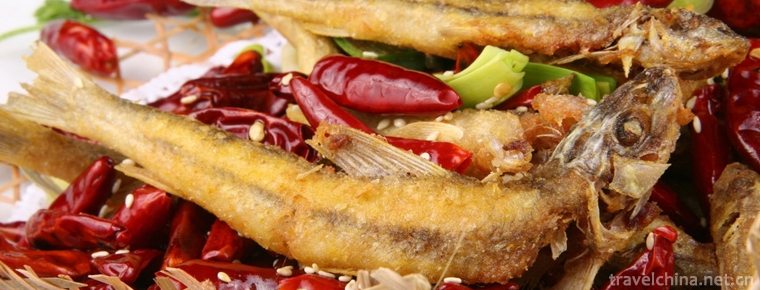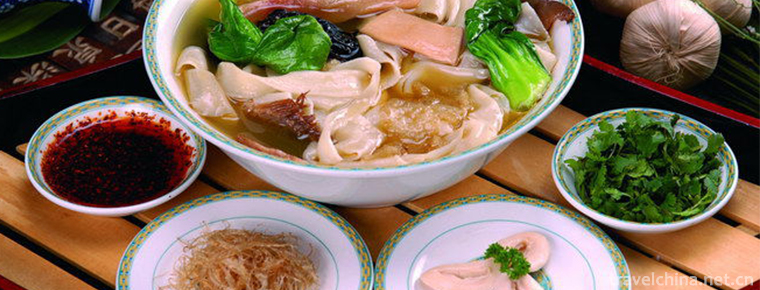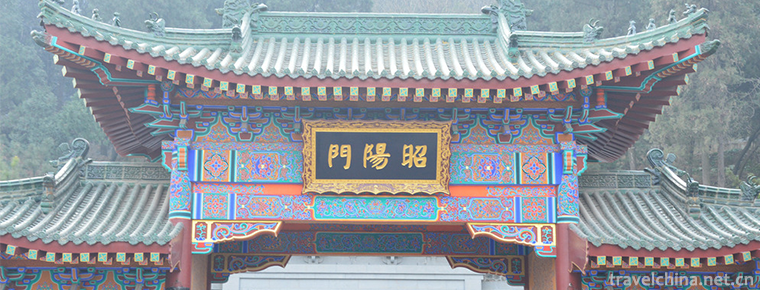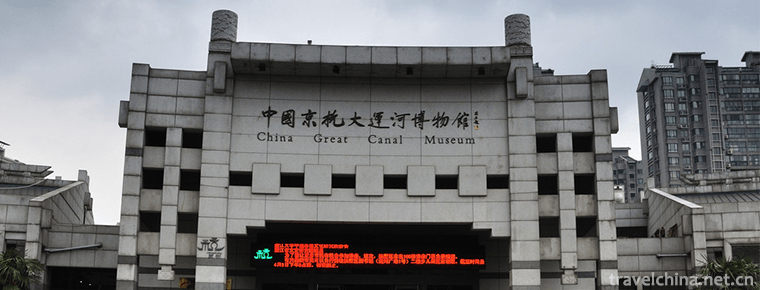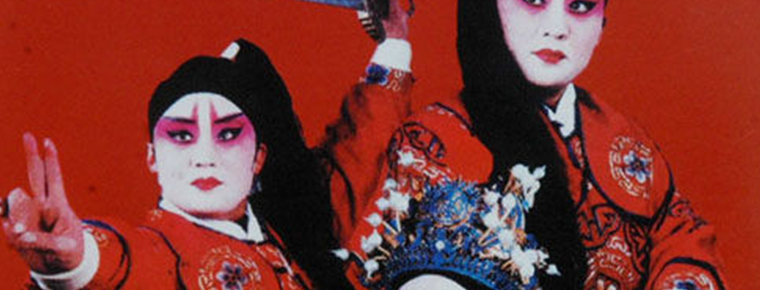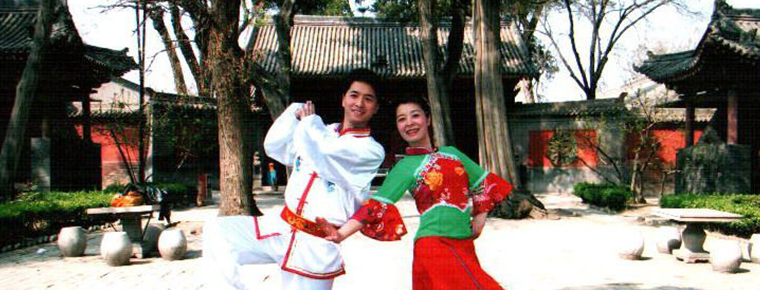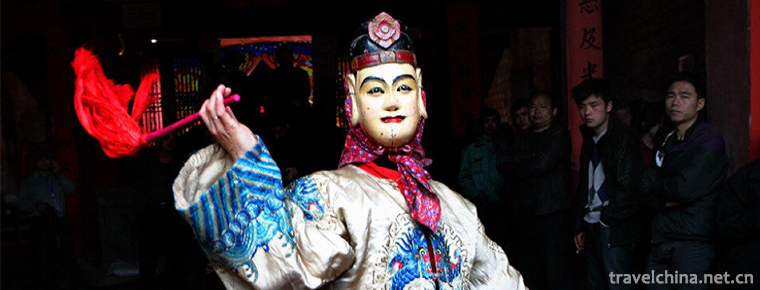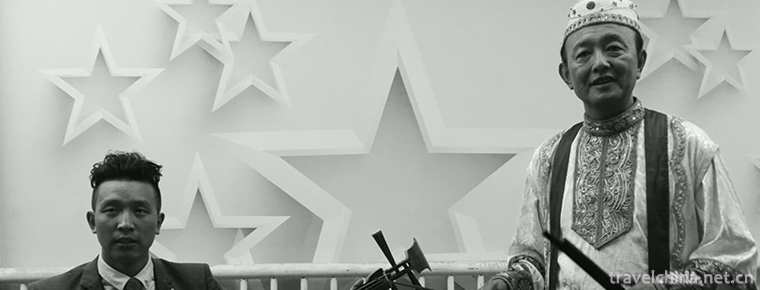Liao Zhais folk songs
Liao Zhais folk songs
The spreading area of Liaozhai slang mainly distributes in Zibo City, Shandong Province. The Pu family and its descendants are the main inheritors. Liaozhai slang is a unique traditional folk music literary genre formed by Pu Songling, a great writer in the early Qing Dynasty, matching his own singing books with the popular tunes of the time. It is a kind of rap and drama written by Pu Songling in Zichuan dialect. Its form is similar to today's Piano Book rap and local opera. The tune used is sung by borrowing dozens of kinds of music (filling in lyrics) circulated at that time. (Since there is no music in the works, only oral transmission, so far, only a dozen records have been compiled by recording). Because Pu Songling's Zhai is called "Liaozhai", it is called "Liaozhai slang" and also known as "Pu Songling slang".
On May 20, 2006, Liaozhai slang was approved by the State Council to be included in the first batch of national intangible cultural heritage list.
historical origin
Pu Songling (1640-1715) was a Qing Dynasty novelist, with the character of Liuxian, a swordsman, the name of Liuquan Jushi, and Zichuan (Zibo, Shandong Province today). Born in a declining landlord family, Shuxiang family, but the fame is not obvious. Father Pu abandoned studying and doing business, but read the history of Confucian classics extensively and learned a lot. When Pu Songling was 19 years old, he took the first place in counties, prefectures and Taoist schools. He had a good literary name, but he failed many times in the future. When he was 20 years old, he tied up with fellow fellow students Wang Luzhan, Li Ximei and Zhang Duqing to form the Yunzhong Poetry Society. He was invited to study at Li Ximei's home because his family was poor. At the age of 31-32, at the invitation of Baoyingzhi County and Sun Hui, a good friend of Tongyi Jinshi, he went to Baoying County, Yangzhou Prefecture, Jiangsu Province as a curtain guest. This is the only time in his life that he has traveled south from his hometown, which is of great significance to his creation. He had a deep experience of the natural landscapes, customs and customs of the South, corruption in official circles and the suffering of the people. He also made friends with some southern lower-class singers. After returning to the north, he lived by setting up libraries at the Ji Gentlemen's house. The owner's library was rich, which enabled him to hunt extensively. At the age of 71, he withdrew his account and returned home, living a life of drinking, poetry and leisure entertainment. In his lifetime, he was keen on imperial examination, but failed to achieve it. At the age of 72, he made up one year-old Gongsheng student, so he had a deep experience of the unreasonable imperial examination system. In addition, since childhood, I like folk literature, collect widely the strange stories of ghosts and ghosts, absorb creative nutrition, melt into my own life experience, and create an outstanding collection of classical Chinese short stories "Strange Stories from Liaozhai". With the fantasy story of the flower demon and fox charm, it reflects the real life and places the author's ideal on it. In addition to Strange Tales from Liaozhai, there are four volumes of anthology and six volumes of poetry; miscellaneous writings such as Provincial Sayings and Huaijinglu; three kinds of operas and 14 kinds of popular slang.
Zichuan is one of the important districts of folk songs in Ming and Qing Dynasties. Pu Songling's Xipu Bijia, who has been sitting in the hall for more than 30 years, is a noble family, and has always had the tradition of compiling and singing slang, which has prepared Pu Songling with excellent social atmosphere and conditions for compiling slang stories. Pu Songling set the experience of his life, gathering the essence of the Qing folk song, and taking the Quju of the various imperial tunes and the tunes of the north and South Song, and completed the creation of 15 pieces of the folk song. Whether in literature or music, these slang songs are of great value. Liaozhai's folk songs include Playing with Children, Yue'e Lang, Pink Lotus and Overlapped Bridge.
In terms of writing time, except for the shorter ones written in the middle age of the author, the rest are mostly written in the late years. From the point of view of writing motivation, the author is to "break through the mystery of the village mediocrity, and awaken the dream of the city", in order to persuade the good and punish the evil, change customs. The direct motive of most works written in Xipu is to please the widow's wife, Mrs. Wang (Wang Yuyang's aunt).
From the point of writing form, Liaozhai slang has experienced a process of development from short stories to long stories, and a process of evolution from simple piano-book rap to stage performance, such as the final completion of "The Curse of Jealousy", "The Hardship Song" and "The Story of the Wall". The author's thoughts also changed from self-pity and self-congratulation to the highest realm of common sorrow and joy.
Representative works
From the content of the works, half of them are adapted from Liaozhai Zhiyi: Aunt's Song, Coral , Mercy Song, Zhang Cheng, Nightmare Turning, Envy Curse, Jiangcheng, Rich Fairy and Hardship Song, Zhang Hongjian, Hansen Song, Shang Sanguan and Xi Fangping. Most of the works reflect the family ethical relations such as mother-in-law (Aunt-in-law song), husband and wife (envy curse), stepmother and son, brother (mercy song), father and son (wallflower), neighborhood relations (such as nightmare turning), social injustice (such as "rich and noble fairies", "tribulation song", "cold song"), until the court's absurdity. (e.g. Supplementary Lucky Cloud Opera). Except for a few games, the author's salvation and conscience are immersed in them. Some works are still full of enlightenment.
Inheritance significance
Liaozhai slang vividly reflects the people's life in the late feudal era, which is popular with the masses. It has long been spread in contemporary society and has become a unique form of mass art in Shandong. The unique charm of Liaozhai slang opera has influenced the development of other sisters'art. Taking opera as an example, the adapted scripts of slang opera stories include Wuyin opera, Liuzi opera, Sichuan opera, Beijing opera, Qin opera and Hebei Bangzi.
The existing 15 kinds of Liaozhai slang manuscripts (the original works lost) have been sorted out and published. There are more than 50 pieces of original Qupai left. In 1962, more than 10 pieces were collected, and more than 30 pieces were searched and translated from ancient books and literature. There are still some missing Qupai to be found. The people who can sing slang are getting old, and the researchers of slang are few, so it is necessary to rescue and protect them.
The state attaches great importance to the protection of intangible cultural heritage. On May 20, 2006, Liaozhai slang was approved by the State Council to be included in the first batch of national intangible cultural heritage list.
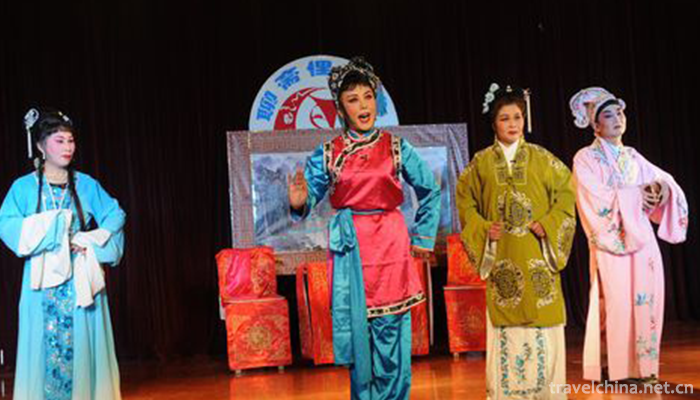
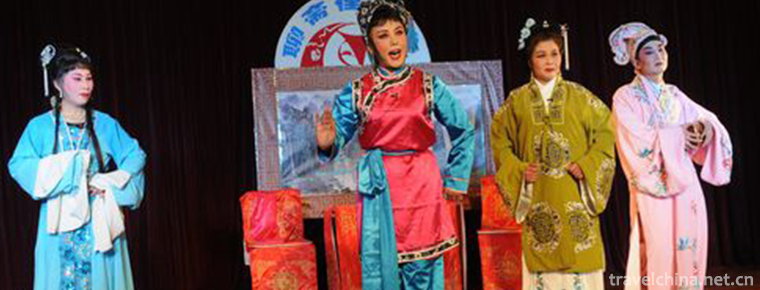
Liao Zhais folk songs
-
Dali arched fish
Dali aToxoplasmus dali, commonly known as fine-scaled fish
Views: 257 Time 2018-10-17 -
Zhengzhou Xiao Ji stewed noodles
Zhengzhou Xiao Ji stewed noodles,Xiao Honghe, the founder of Xiao Ji Yanmian, was a master of Yifumian at Changchun State-owned Hotel in Zhengzhou.
Views: 198 Time 2018-11-26 -
Huaqing Pool Scenic Area
Tang Huaqing Palace is another palace for feudal emperors in Tang Dynasty. Later also known as "Huaqing Pool", located in Lintong District, Xi'an City, Shaanxi Province.
Views: 171 Time 2018-12-12 -
Beijing Hangzhou Grand Canal Museum
The Beijing-Hangzhou Grand Canal Museum of China is located on the south side of the Canal Cultural Plaza in Gongshu District, Hangzhou City, Zhejiang Province, adjacent to the Gongchen Bridge, the te
Views: 241 Time 2018-12-22 -
Expo Area of Acient Kiln Folk Cultures in Jingde
Jingdezhen Ancient Kiln Folklore Expo Area, located in Fengshu Mountain and Panlonggang, Changjiang District, Jingdezhen City, Jiangxi Province, covers an area of 83 hectares. It is a cultural tourist
Views: 176 Time 2019-01-12 -
Big flat tone
Da Ping Diao (also known as Ping Diao, Da You Bang and Da Bang Opera), one of the local traditional operas in Henan and Shandong Province, is one of the national intangible cultural heritage.
Views: 241 Time 2019-04-23 -
Hancheng Yangko
Hancheng Yangko, commonly known as "singing Yangko", is a form of singing that integrates folk songs, rap and dance, and derives from traditional opera
Views: 325 Time 2019-05-02 -
nuo dance
In the traditional Chinese civilization, "Nuo" is a social and cultural phenomenon with strong religious and artistic color, which has a long history and is widely popular in the Han nationa
Views: 189 Time 2019-06-08 -
Weaving Techniques of Summer Cloth
Wanzai summer cloth is completely manually woven. Its production process mainly consists of ramie treatment, yarn performance and weaving. It needs many processes to weave.
Views: 218 Time 2019-07-01 -
virtuous and filial
Xianxiao was born out of Buddhist folklore, and has a deep relationship with Xiliangle music, Dunhuang Bianwen and Hexi Baojuan. The way of inheritance mainly depends on the artistic population. Its c
Views: 182 Time 2019-07-01 -
Xichang College
Xichang College is located in Liangshan Yi Autonomous Prefecture, Sichuan Province, which is the largest Yi inhabited area in the country "spanning thousands of years step by step". It is a
Views: 163 Time 2019-08-31 -
Ganzi milk dregs
The traditional biscuit snack "Tui" is made of milk dregs and butter. And made from milk dregs. After the milk i
Views: 217 Time 2020-12-06
